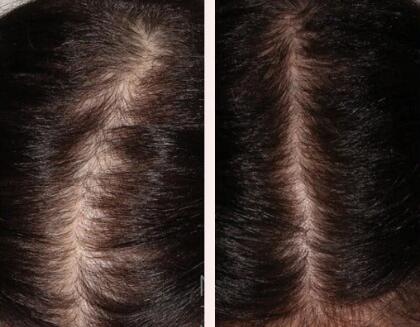Categories
- Blog (65)
Hair loss can be caused by a variety of factors, including genetics, hormonal imbalances, stress, poor nutrition, and environmental factors. Fortunately, there are several effective prevention methods and treatments that can help slow down or prevent hair loss, depending on the cause. Below are some prevention methods for hair loss, along with natural and medical options.
Proper nutrition is key to maintaining healthy hair. Deficiencies in certain vitamins and minerals can contribute to hair thinning or hair loss.
Iron: Low iron levels can lead to hair loss, so it’s important to consume iron-rich foods like spinach, lean meats, legumes, and fortified cereals.
Vitamin D: A deficiency in vitamin D can lead to hair loss, so it’s helpful to get sunlight exposure and consume foods such as fatty fish, egg yolks, and fortified dairy products.
Biotin: This B vitamin is known to support hair health. Include biotin-rich foods like eggs, almonds, avocados, and whole grains.
Zinc: Zinc supports hair growth and repair, and a deficiency can lead to hair loss. Foods like oysters, beef, pumpkin seeds, and lentils are rich in zinc.
Omega-3 Fatty Acids: Omega-3s promote healthy hair growth and are found in fatty fish (like salmon), walnuts, flaxseeds, and chia seeds.

The way you care for your hair can play a role in preventing damage and hair loss.
Avoid Over-Washing: Washing hair too often can strip it of natural oils that keep it moisturized and healthy. Aim to wash your hair 2-3 times a week.
Use Gentle Shampoo and Conditioner: Choose products free from sulfates, parabens, and alcohol that can damage the hair and scalp. Look for shampoos with natural ingredients that nourish the hair.
Avoid Heat Styling: Excessive use of heat styling tools (such as straighteners, curling irons, and blow dryers) can damage the hair shaft, leading to breakage and thinning. If you must use them, apply a heat protectant spray.
Minimize Chemical Treatments: Frequent coloring, perming, or relaxing can weaken the hair. If possible, limit these treatments or use gentler formulas.
Be Gentle When Drying Hair: After washing, avoid vigorous towel drying. Instead, gently pat your hair dry or use a microfiber towel that minimizes friction and damage.
A healthy scalp is essential for strong, growing hair. Keeping the scalp clean, moisturized, and free from buildup promotes a good environment for hair follicles.
Regular Scalp Massages: Gently massaging your scalp with your fingertips increases blood circulation, which can promote hair growth. You can also use oils like castor oil, argan oil, or coconut oil to moisturize the scalp.
Avoid Tight Hairstyles: Tight ponytails, buns, or braids can cause tension on the hair shaft, leading to a condition called traction alopecia. Opt for looser styles to avoid stress on the hair.
Exfoliate Your Scalp: Using a gentle scalp exfoliator can help remove dead skin cells and product buildup, which can block hair follicles.
Chronic stress is a major contributor to hair loss. It can trigger a type of hair loss called telogen effluvium, where a large number of hair follicles enter the shedding phase prematurely.
Exercise: Regular physical activity can help reduce stress and improve overall well-being.
Mindfulness and Relaxation: Practices like meditation, yoga, deep breathing exercises, and journaling can help lower stress levels.
Adequate Sleep: Poor sleep patterns can contribute to hair loss. Aim for 7-9 hours of quality sleep per night.
Both smoking and excessive alcohol consumption can negatively impact hair health by restricting blood flow to the scalp and affecting the absorption of essential nutrients. Avoiding these habits can help maintain healthy hair growth.
Several medical treatments are available to help prevent hair loss, especially if it is due to hormonal imbalances or genetics.
Minoxidil : Over-the-counter topical treatment that is commonly used for pattern baldness (androgenetic alopecia). It helps stimulate hair growth and is available in both liquid and foam forms.
Finasteride : An oral medication prescribed to men with androgenetic alopecia. It works by inhibiting the conversion of testosterone to DHT, which is responsible for shrinking hair follicles.
Low-Level Laser Therapy (LLLT): Laser devices like combs, caps, or helmets use low-level lasers to stimulate hair follicles and improve hair growth.
Platelet-Rich Plasma (PRP) Therapy: A treatment where the patient’s own blood is drawn, processed to concentrate the platelets, and then injected into the scalp. PRP has been shown to stimulate hair growth and improve hair density in some cases.
Hair loss Prevention involves a combination of lifestyle habits, healthy hair care, stress management, and, if necessary, medical interventions. Maintaining a balanced diet rich in key vitamins and minerals, caring for your scalp, avoiding excessive styling or chemical treatments, and managing stress are all important steps. If you suspect an underlying health issue is contributing to hair loss, seeking professional advice is essential to determine the most appropriate treatment.